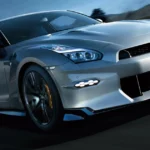What Makes Tesla a Luxury Car or Does It?:Â In the ever-evolving world of automotive innovation, few brands have sparked as much debate and intrigue as Tesla. With its groundbreaking electric technology, sleek design, and high-tech features, many have begun to classify the electric vehicle (EV) brand as a luxury car maker.
But is Tesla truly a luxury car, or does it merely present itself as one? In this article, we’ll explore the key attributes that make Tesla stand out and examine whether it meets the criteria of a traditional luxury vehicle.
Defining a Luxury Car: What Does It Mean?
Before we dive into whether Tesla fits into the luxury car category, it’s important to first understand what constitutes a luxury vehicle. Luxury cars are typically defined by several key features:
- Price and Exclusivity – Luxury vehicles are often priced significantly higher than standard cars, making them exclusive and desirable.
- Superior Performance – High-end cars are known for their exceptional performance, including powerful engines, smooth rides, and advanced handling capabilities.
- Top-Tier Materials – Luxury cars are crafted with premium materials like fine leather, high-grade metals, and custom finishes.
- Cutting-Edge Technology – Features like advanced infotainment systems, driver assistance technologies, and connectivity are standard in luxury vehicles.
- Prestige and Brand Image – The brand itself plays a significant role in luxury, with many luxury cars associated with heritage, performance, and exclusivity.
Now that we have a solid foundation for what makes a car “luxury,” let’s break down how Tesla compares.
1. Price and Exclusivity
Tesla’s pricing can vary significantly depending on the model. For instance, the Model 3 starts at a relatively affordable price for an electric vehicle, but as you move up the lineup to the Model S and Model X, the prices escalate, reaching luxury car territory.
The Model S, starting at over $90,000, competes with high-end vehicles like the BMW 7 Series or Audi A8, both of which are well-established luxury sedans. The exclusivity factor is also at play, as owning a Tesla signals an affinity for innovation, sustainability, and cutting-edge technology, which appeals to a certain luxury-minded consumer base.
2. Superior Performance
One of the key features of a luxury car is top-tier performance, and Tesla doesn’t disappoint. The electric powertrains in Tesla vehicles deliver remarkable acceleration, handling, and speed, often surpassing traditional luxury brands. For example, the Tesla Model S Plaid can go from 0 to 60 mph in under 2 seconds, making it one of the fastest production cars in the world.
Beyond speed, Tesla vehicles offer a smooth, quiet, and refined driving experience, thanks to their electric motors and advanced suspension systems.
Autopilot and Full Self-Driving (FSD) capabilities also enhance the overall driving experience, pushing Tesla’s performance closer to what you might expect from a luxury car, though they still face some scrutiny when it comes to full autonomy.
3. Top-Tier Materials and Craftsmanship
While Tesla excels in many areas, the materials used in its cars might not always meet the standards of traditional luxury vehicles. For instance, compared to competitors like Mercedes-Benz or Lexus, some Tesla interiors can feel more minimalist and less opulent.
The cabin features premium materials, such as leather seating and wood accents, but the overall fit and finish may not always match the meticulous craftsmanship found in other luxury automakers.
That being said, Tesla’s design philosophy leans toward a sleek, futuristic aesthetic, which some buyers appreciate. The emphasis is more on technology and innovation rather than sheer opulence, but it’s worth noting that the brand’s interiors may not offer the same level of luxury as those found in long-established luxury brands.
4. Cutting-Edge Technology
Here, Tesla unquestionably shines. The brand is known for its innovative features, many of which are at the forefront of automotive technology. Tesla’s user interface, powered by a large touchscreen display, is one of the most intuitive and advanced infotainment systems available.
Over-the-air software updates allow for continuous improvement of the vehicle’s features, a level of customization and adaptability that traditional luxury brands struggle to match.
Additionally, Tesla’s Autopilot system and Full Self-Driving options push the boundaries of autonomous driving, offering features like automatic lane changes, park assist, and self-parking, which are often considered luxury car staples.
Tesla’s commitment to integrating new technologies into its vehicles is a hallmark of the brand and an important factor in its luxury appeal.
5. Prestige and Brand Image
Tesla’s brand image plays a crucial role in its perception as a luxury automaker. While the company is relatively young compared to established luxury car makers, it has quickly gained recognition for innovation, sustainability, and performance. Tesla owners are often seen as early adopters of cutting-edge technology and environmental consciousness, both of which can confer a sense of prestige.
However, the brand’s relatively recent entry into the luxury market and its focus on mass production through models like the Model 3 may dilute its exclusivity in the eyes of some consumers. Traditional luxury car brands have decades, if not centuries, of history to back their prestigious images, and while Tesla is undoubtedly influential, it has yet to establish the same legacy.
Does Tesla Truly Qualify as a Luxury Car?
So, does Tesla meet the definition of a luxury car? The answer depends on how you define luxury.
- Technology: Tesla leads the pack with its futuristic technology and impressive electric powertrains, offering a unique blend of performance and sustainability.
- Price: With models like the Model S and Model X, Tesla undoubtedly competes with luxury vehicles in terms of price and exclusivity.
- Interior Quality: While functional and minimalistic, the interior quality may not match the craftsmanship of traditional luxury brands, although it’s a matter of personal taste.
- Brand Image: Tesla has established itself as a high-tech, sustainable brand, but its relatively young age means it lacks the centuries-old heritage of brands like Mercedes-Benz, BMW, or Rolls-Royce.
In conclusion, Tesla can be considered a luxury carby many of the standards that define high-end vehicles. It may not check every box in terms of traditional luxury, such as materials and craftsmanship, but it surpasses expectations in terms of performance, technology, and innovation.
Whether or not it fits into the same category as legacy luxury automakers is ultimately subjective, but there’s no doubt that Tesla is leading the charge toward a new era of automotive luxury.



